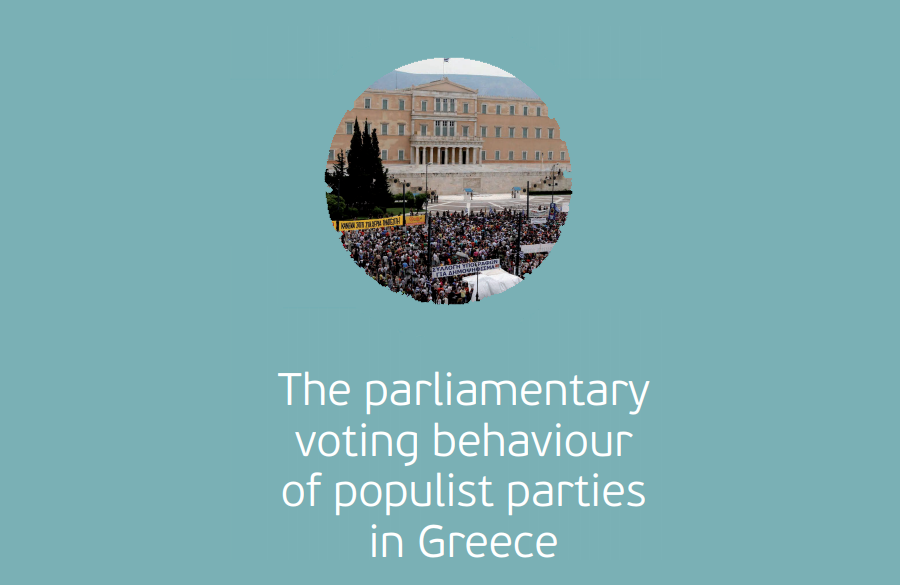

The study seeks to explore if Timbro Institute’s methodological distinction in the Authoritarian Populism Index between extreme and authoritarian populist parties is relevant in the Greek political environment. To test the relevance of the Timbro distinction we analyzed and compared the opposition parliamentary vote of SYRIZA, ANEL, Golden Dawn, and KKE relative to 432 bills during the period June 2012 to December 2018. The parliamentary voting behaviour of each party is conceived into two dimensions: the voting stance (consensual or confrontational) and the voting strategy (rigid or flexible).
The results demonstrate that the parliamentary voting patterns of the Greek populist parties are significantly different from that of non-populist parties. Populists when in the opposition tend to oppose the majority bills much more often and consistently than non-populists. The extreme parties (KKE and Golden Dawn) follow a confrontational and rigid parliamentary voting behaviour. The differences of their respective voting patterns are small and insignificant. The authoritarian parties (SYRIZA and ANEL) exhibit a different voting behaviour. They vote against most of the bills, but less consistently than the extreme parties. SYRIZA’s voting behaviour is more confrontational and rigid than ANEL’s.
The study was accomplished thanks to the support of Atlas Network, EPICENTER – the European Policy Information Center and Timbro.
You can watch the event video from the first presentation of the study at Megaron Mousikis on our YouTube channel and find the event photos here.
You can also find the full study here.
Laikismos-1Σχετικά άρθρα